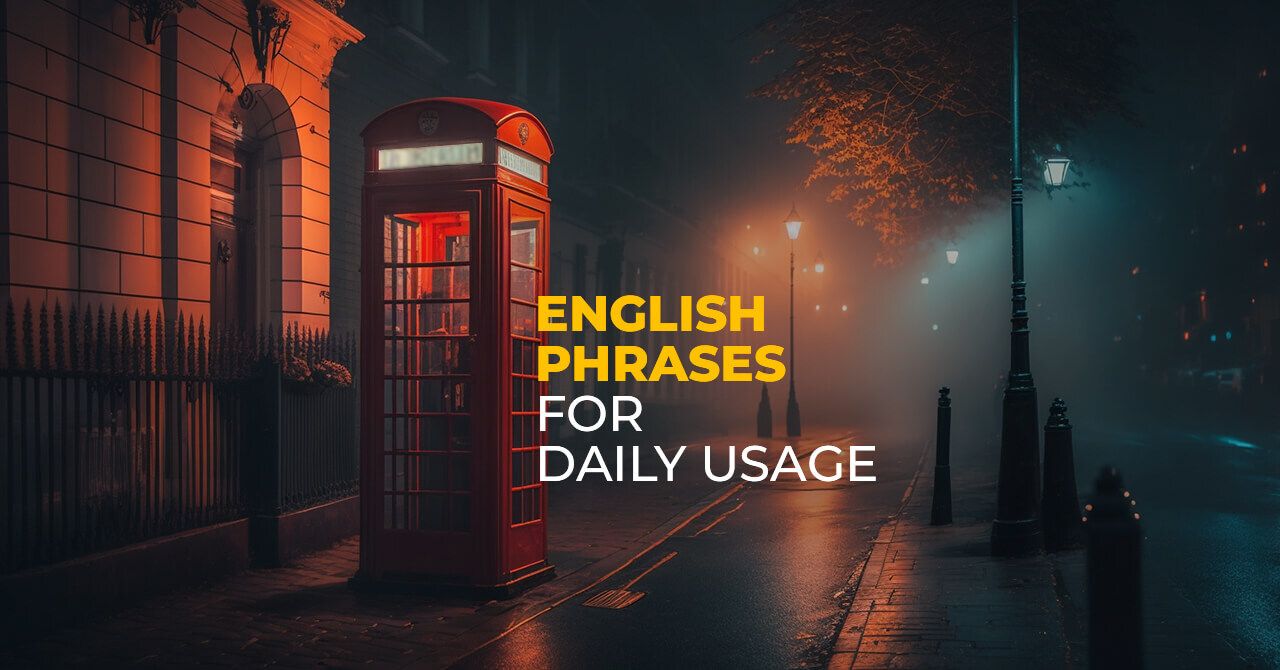
Learn Simple English Phrases for Daily Usage
Accents don’t make you a good or even better English speaker; vocabulary does. And once you have the vocabulary, pronunciation, and accent, get better by practicing.
Simple sentences in English for beginners don’t focus on pronunciation and accent. Because that is not what you need when learning a new language. What you do need as a beginner is an expansive vocabulary.
Accents don’t make you a good or even better English speaker; vocabulary does. And once you have the vocabulary, pronunciation, and accent, get better by practicing.
Seeing how important it is to build your vocabulary as an English speaker, this is a short guide to simple English phrases for daily use as a beginner with normal English sentences.
When meeting new people
The fact that you will meet new people almost every day is a no-brainer. And when you meet new people, you should introduce yourself and have them do the same. You want to know phrases used in daily life that help you respond to questions you might be asked during the conversation.
Here are a few conversational phrases in English:
1. Hello! My name is [... ]. And you?
This is an informal greeting, so if you are meeting people outside of your workplace, this is how your introduction can sound.
2. It is so lovely to meet you. Do you come here often?
If you meet at a public place, e.g., a restaurant or a bar, after the introductions are made, and you wish to continue the conversation, you can ask this question. Asking them if they visit that spot regularly is a conversation starter, and from there, you might learn a few things from the speaker.
3. See you soon
When all is said and done, and the conversation is over, you can tell your new acquaintance, “See you later!” as you bid your farewells.
Here are a few other phrases to help improve your English conversations.
To ask someone how they are doing: How are you? What’s up?
To show gratitude: Thank you very much; I’m very grateful.
To ask for directions: Excuse me, I’m trying to get to [...]. Can you help me by pointing me in the right direction?
To ask for the price of an item: Excuse me? How much does this cost? How much is this?
How do you spell that?—This is when you try to write something down and can’t get the spelling right.
To end a conversation: I’ve had so much fun talking to you. Let’s do this again soon; I must return to work/class.
English idioms for beginners
For a beginner learning English, one thing that could confuse you, especially when you hear it for the first time, are idioms. Here are common idioms and their means to boost your vocabulary.
One peculiar thing about these idioms is that beginner-level English speakers always get them wrong. This is because idioms are not literally as you read or hear them. They have another meaning. Here are a few examples of these idioms.
Break a leg – Good luck
A perfect storm – The worst-case scenario
It costs an arm and a leg – It is costly
Drop someone a line – Send an email or letter to someone
Give someone a hand – To help someone
Hit the hay/sack – to go to sleep
In the black – The business is doing well and making money
In the red – The business is not making a profit
To know something like the back of your hand – To know it very well
Sleep on it – To think about an issue before deciding on it
Conclusion
Learning English phrases is very easy; you need to pay attention to native speakers while they speak.
Watch TV shows and listen to podcasts as they are often very rich in basic sentences in English that will help build your vocabulary. But above all, practice is paramount to any growth.
Hello! I am Moses, an expert content writer, editor, and copywriter. I have a Master's degree in journalism, media studies, and communication. I enjoy creating content.

